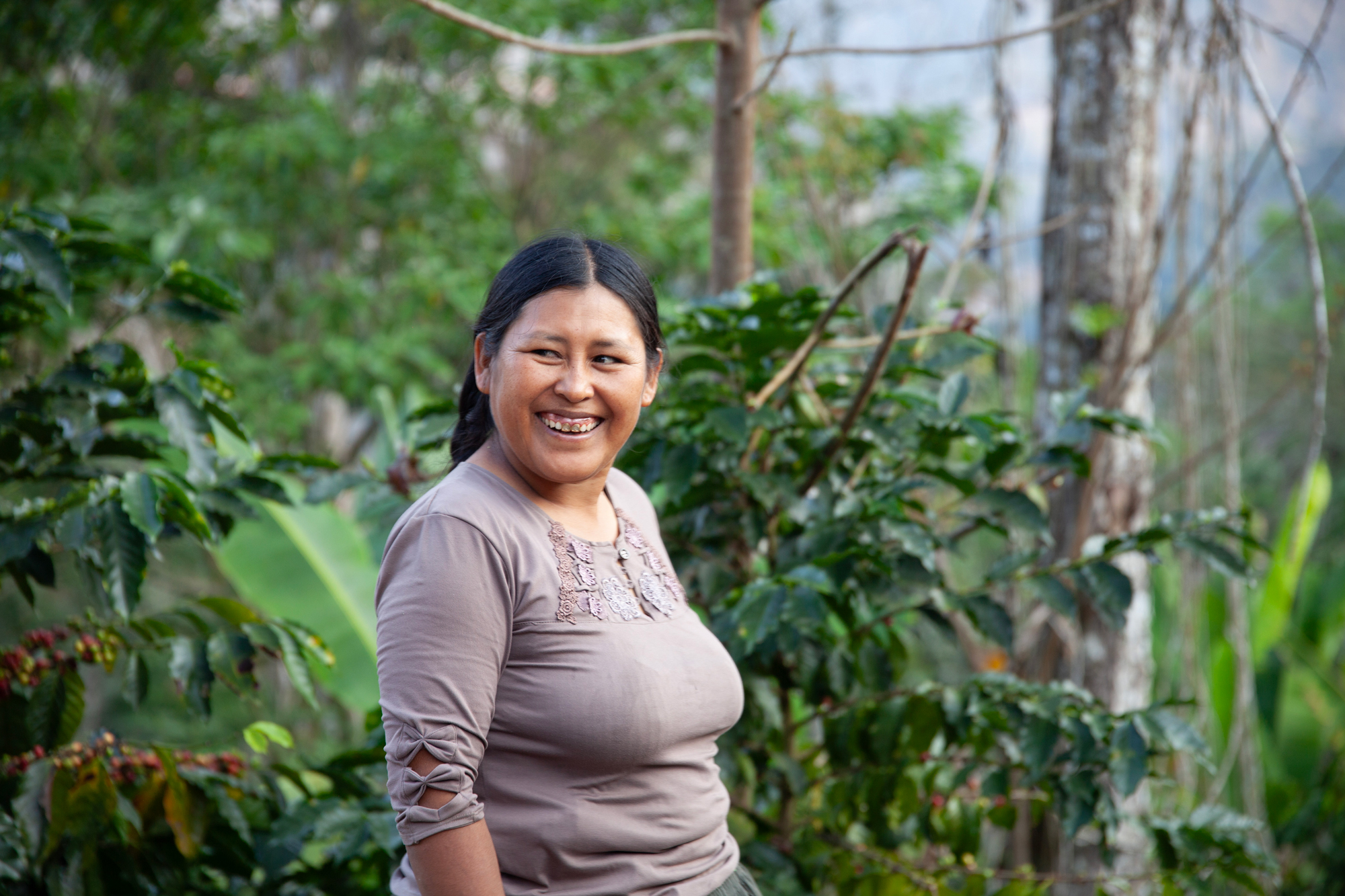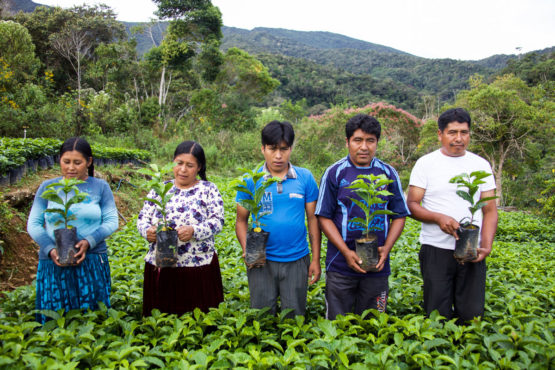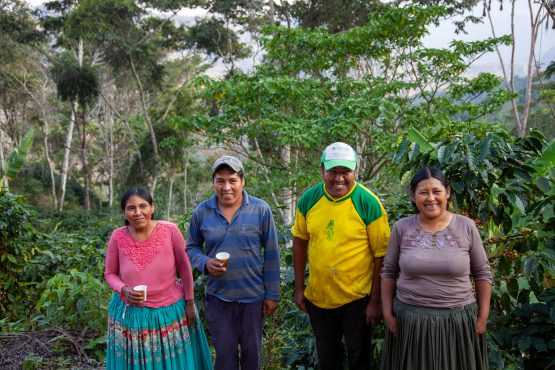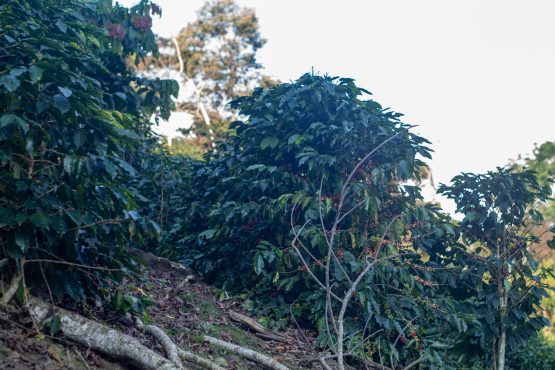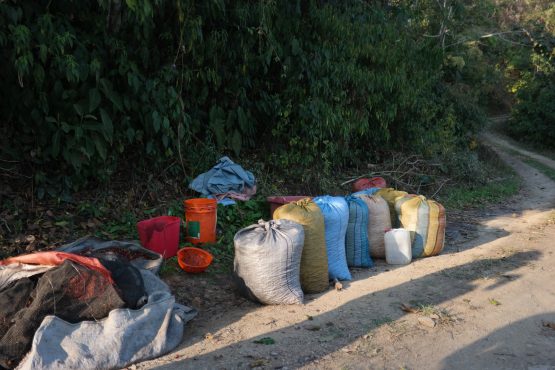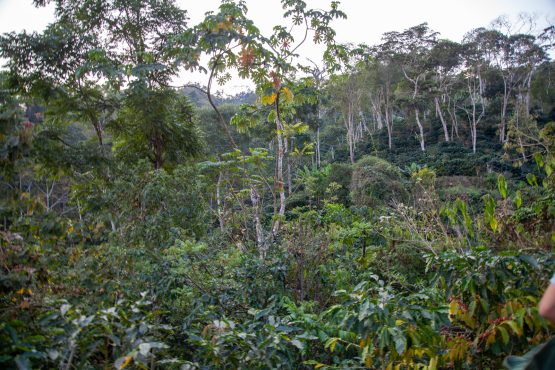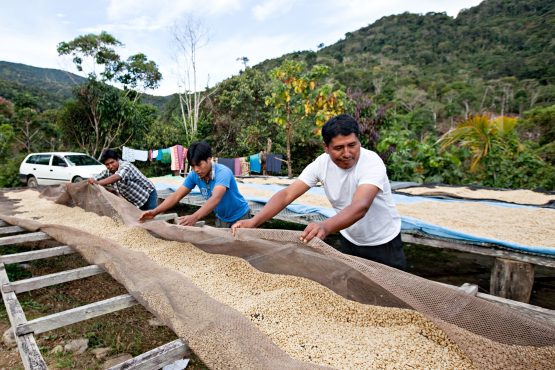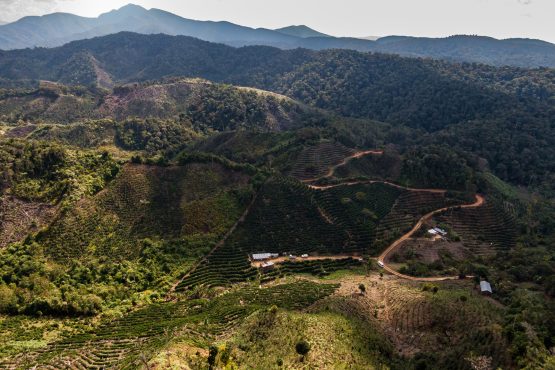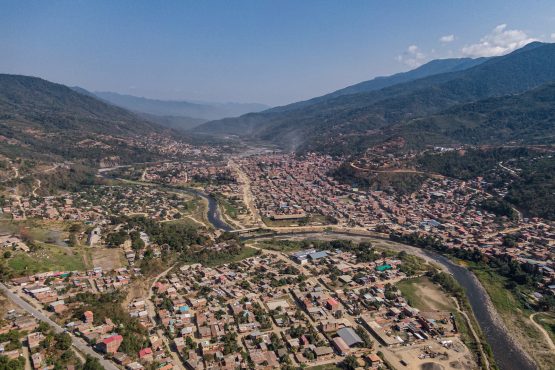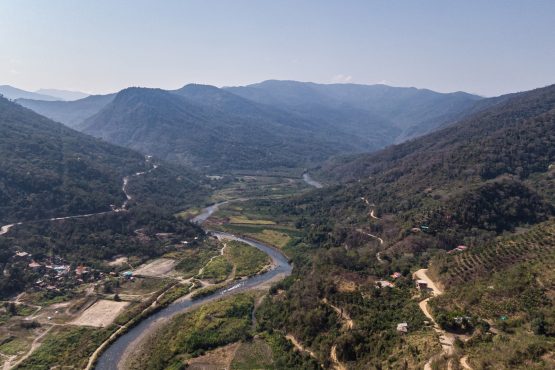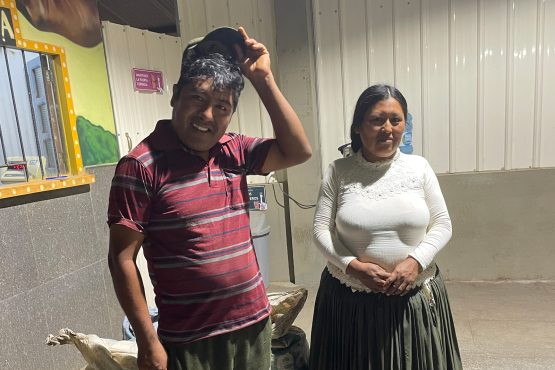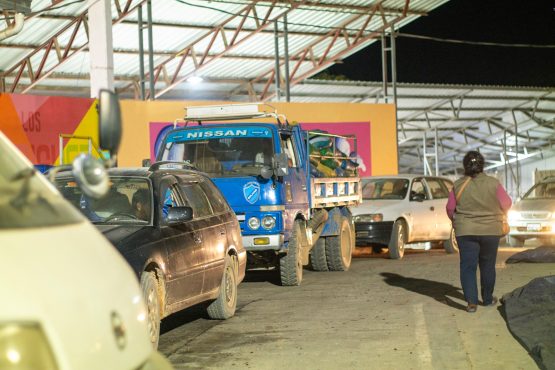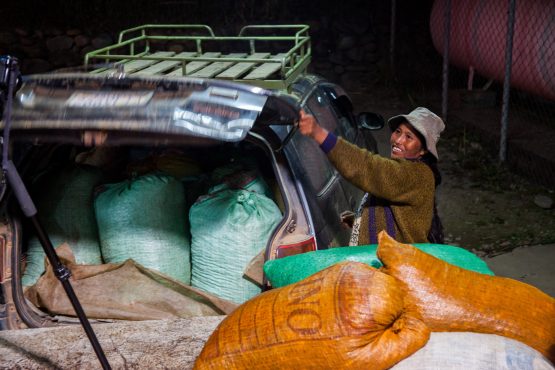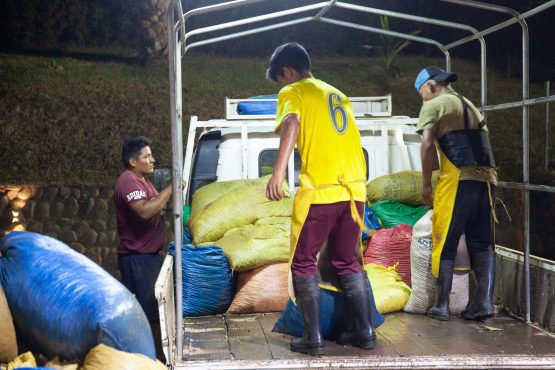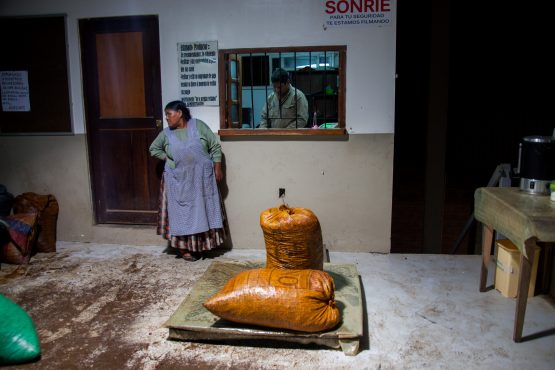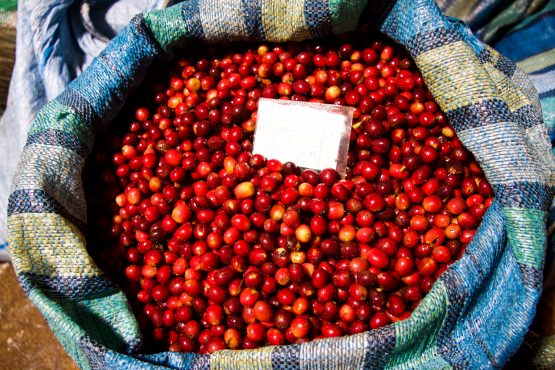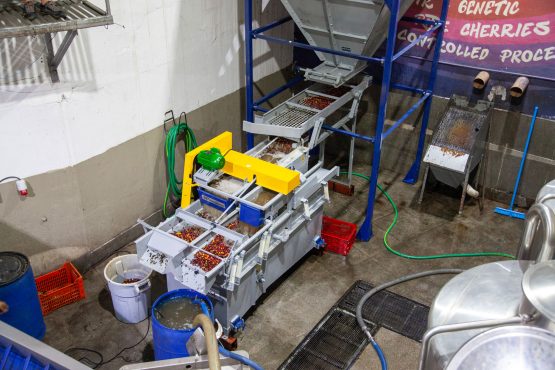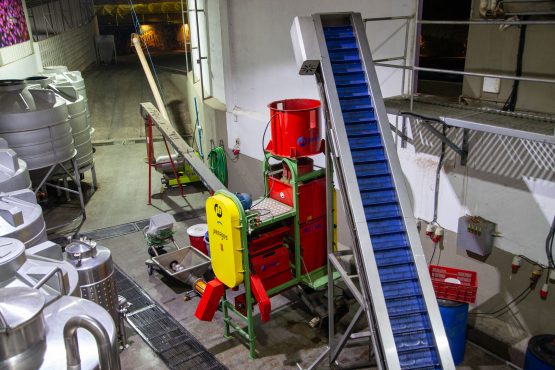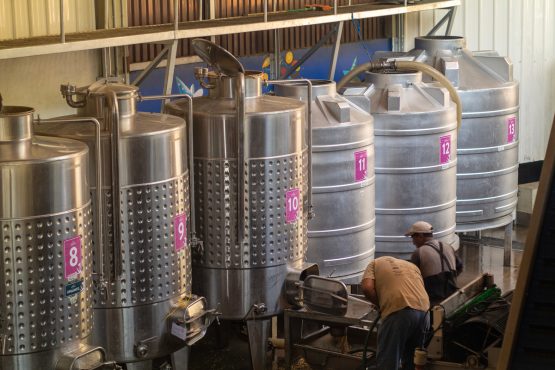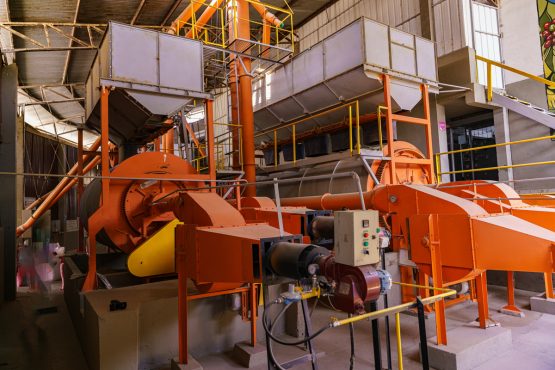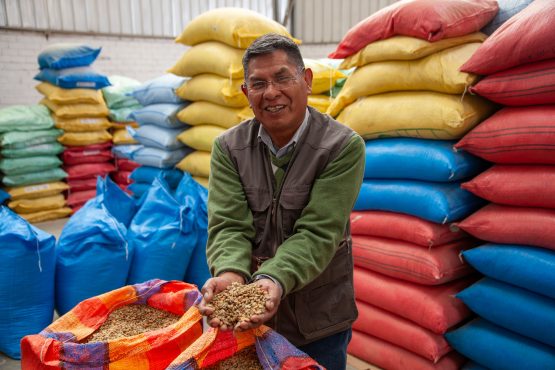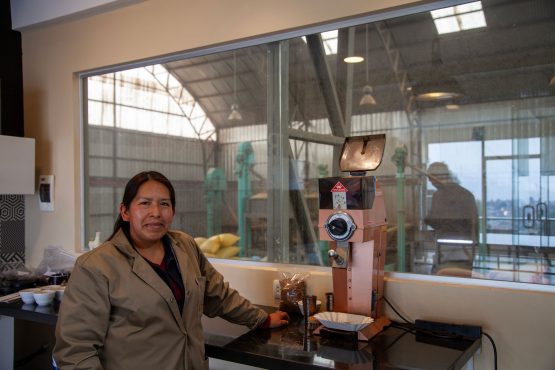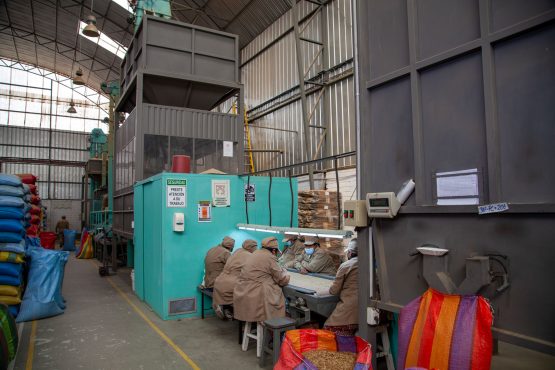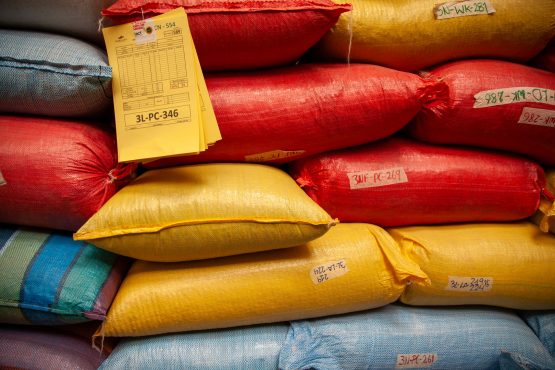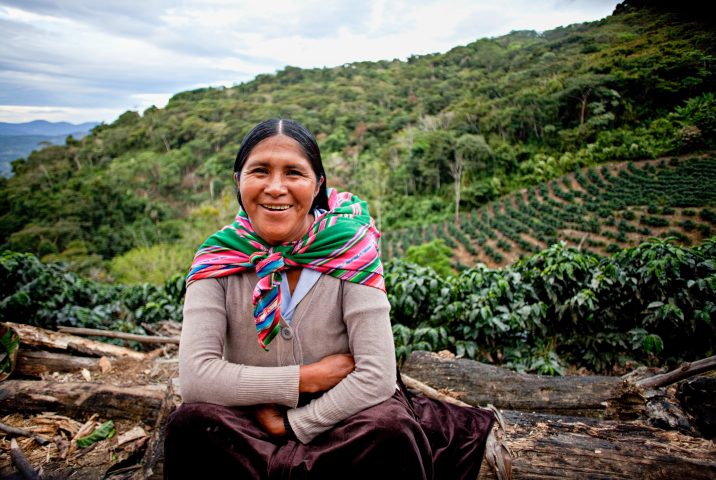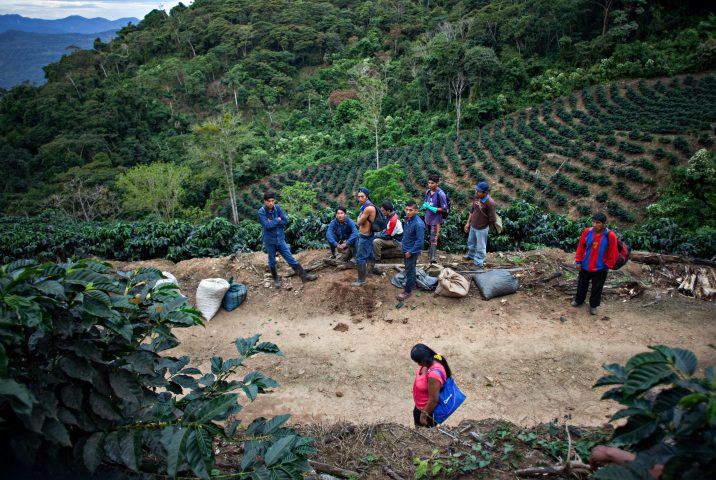Juana Mamani
Well balanced and sweet. Pear, mandarin and toasted hazelnut, with lingering milk chocolate on the finish.
This coffee was grown by the dynamic team of Juana and Juan Carlos Mamani, in Uchumachi, a small and remote settlement 180 kilometres from Bolivian capital La Paz, in the heart of the Caranavi province. Caranavi is the epicentre for specialty coffee production in Bolivia, with incredibly high elevations, rich soil, and wide daily temperature ranges providing the perfect conditions to produce exceptional coffee.
Juana Mamani is a first-generation coffee farmer. She bought her six-hectare coffee farm when she was just 16 years old after working nearby on her sister’s farm for five years – long enough to save up to buy her own plot. At 23, she went on to win second place in Bolivia’s Cup of Excellence 2007 with a score of 90.78. Today, she owns the property with her husband Juan, and the couple have named their farm Llana.
Juana and Juan are members of one of the most influential coffee farming families in Bolivia. Mamani is a very common name throughout Bolivia, but in this case, we refer to family members Mauricio, Nolberto, René, and of course, Juana and Juan Carlos. The family is renowned throughout the region for the coffee they grow and the impact they’ve had on specialty coffee production within their community.
When Juana and the extended Mamani family first got into coffee, they would sell it to the local market as wet parchment – known locally as café en mote. But over the last decade (since the arrival of the Cup of Excellence), the entire family has focused on producing specialty coffee. Now, they selectively pick their coffee cherries and sell their top-grade coffees for substantially higher prices to our partners the Rodríguez family at Agricafe as part of their Sol de la Mañana program. This initiative is aimed at improving infrastructure and farming practices at farm level to create a more sustainable future for coffee in Bolivia.
As members of the Sol de la Mañana program, Juana and Juan follow a structured series of courses focused on improving both quality and, critically, yields. The curriculum hones in on one aspect of farming at a time and includes information on building and maintaining a coffee nursery, when to prune and use fertiliser, how to avoid and treat leaf rust, and how to selectively pick coffee. Agricafe has also helped the Mamanis identify which parts of their farms to renovate or repair, and plan where to replant new trees, with a focus on long term, sustainable, and ultimately profitable farming practices.
The results of the Sol de la Mañana program have been profound for the Mamanis, with improved quality and a significant increase in their average yield. Off the back of the program the entire family has become more confident, proactive and engaged, and actively share their learnings and experiences with each other and their wider community.
‘We know how produce exceptional coffee but we are now taking a more scientific approach to coffee farming,’ Juana explained
With the knowledge gleaned from the program the Mamanis have planted a vibrant new nursery, aggressively renovated their farms, pruned the trees, and taken a more structured and planned approach to the way they farm. Their yields have increased substantially as a result, and they no longer have the capacity to do all of the picking themselves, needing the help from eight to ten seasonal workers. Picking is very hard at Finca Llana, as the trees grow on a very steep incline, and the harvest requires between five to six passes.
Juan and Juana have also reduced how much of their own wet-milling and drying they do themselves, and Agricafe handles the processing of around 75% of their volumes at Buena Vista, their impeccable wet mill in Caranavi. During the harvest, the couple take the long two hour drive to the mill to deliver their cherry, sometimes making it back to the farm past midnight, only to start their next day a few hours later. While days during the season are long, when we asked the Mamanis why they were so motivated to continue working in coffee all these years later, Juan simply smiled and said, “because every harvest is a blessing to us.”
In the last couple of years, the profits earned from their increased production has enabled the couple to expand their farm to seven hectares, and have recently purchased another plot with Juana’s brother René and his wife Nicolasa. This new plot is up the hill from Finca Llana, and it is being tended to following organic practices and under the shade of cedar and inga trees. While this approach is a departure from Sol de La Mañana practices, Juana and Juan reckon starting a plantation from scratch on fertile, untouched soil is the only way to make organic farming work in the region. So far, the new plot has required a lot of attention, but the soil is less needy and less fertiliser is required as a result of their practices.
Head here to learn more about the wonderful Sol de La Mañana program, and here to learn more about the incredible work the Rodríguez family and Agricafe are doing in Bolivia.
ABOUT CARANAVI
The inhabitants of Caranavi first started farming coffee in the 1950s, when a government-led agrarian reform resulted in small parcels of land (of around 10 hectares in size each) being redistributed back to thousands of largely Aymara families. The Aymara are one of Bolivia’s 36 indigenous nations, who originally lived on the highlands of the Altiplano (a vast plateau of the central Andes that stretches from southern Peru to Bolivia and into northern Chile and Argentina). Along with the Quechuas, who lived in the Bolivian lowlands, both groups immigrated to Caranavi to find a better life through agriculture.
The municipality is located in the Yungas ecoregion, one of South America’s most fertile and diverse locations. The region runs along both sides of the Andes Mountains, and is known for the world’s highest lake, called Titicaca. In the Quechua language, Yungas translates to “the warm lands,” in reference to the rainy, yet warm climate experienced in the region.
Many families in Caranavi, including the Mamanis, used to depend on the local market to sell their coffee, which meant low prices and little reliability. Now, they selectively pick their coffee cherries and sell their top-grade coffees for substantially higher prices to our partners the Rodríguez family of Agricafe, who process specialty lots at their wet mill in town.
HOW THIS COFFEE WAS PROCESSED
Juana and Juan Carlos Mamani now own a few plots in Uchumachi, located at 1,500–1,670 metres above sea level. This elevation, coupled with the region’s latitude, helps ensure a slow maturation of the coffee cherry, which allows the concentrated sugars to develop more evenly, giving the cup more structure and complex flavours. The couple deliver most of their cherry to Buena Vista for processing. This meticulously run washing station is owned by Agricafe, who painstakingly process each of the exceptional specialty lots they receive separately, allowing for full traceability back to the individual farmer or settlement.
Agricafe draw a lot of inspiration from the wine industry in their approach to coffee production, and are always innovating and trialling different processing techniques at Buena Vista. This coffee was processed with experimental techniques, part of the Rodriguez family’s long term strategy to achieve the greatest distinction and diversity in their special lots. Watch the video below to see how Juana and Juan’s coffee was processed:
Evenings at the mill are always bustling as arrivals of fresh cherries begin in the late afternoon, after the day’s picking, and continue deep into the night. It is widely known around Caranavi that only perfectly ripe cherries will be accepted by this mill and all lots are inspected on arrival prior to processing. In an arrangement somewhat unique to this mill, many farmers use taxis to deliver coffee, and by 7 pm a long line of taxis forms along the road leading to the mill.
Cherries for this lot were delivered to Agricafe’s state of the art mill Buena Vista in the evening. After being inspected and weighed, the coffee cherry was carefully sorted by weight using water and disinfected, in a large capacity machine the Rodríguez family have dubbed ‘La Maravilla,’ which translates to ‘the wonder’ due to its efficiency. Following this, the coffee was transported to the mill’s new, water-efficient Penagos mechanical pulper using a conveyor belt. Not only do these pieces of equipment use significantly less resources than in previous years, but they both recirculate water several times before it is treated and returned to the local waterways.
It was then fermented in a sealed stainless steel tank for 48 hours. The team at Buena Vista made sure the lid remained shut for the full period of fermentation, to ensure no oxygen touched the cherries and that the punch-like, boozy aroma remained trapped inside. The wet parchment was then washed with fresh, clean water and carefully machine-dried for 105 hours using a ‘guardiola,’ a horizontal, rotating drum that gets rid of moisture by creating a warm, consistent flow of air around the coffee.
Once the coffee was dry, it was transported to La Paz where it was rested before being milled at Agricafe’s dry mill, La Luna. At this state-of-the-art mill, the coffee was first hulled and sorted using machinery, and then by a team of workers who meticulously sorted the coffee again (this time by hand) under UV and natural light. The mill is one of the cleanest and most impressive we have seen – you can read more about it here.
